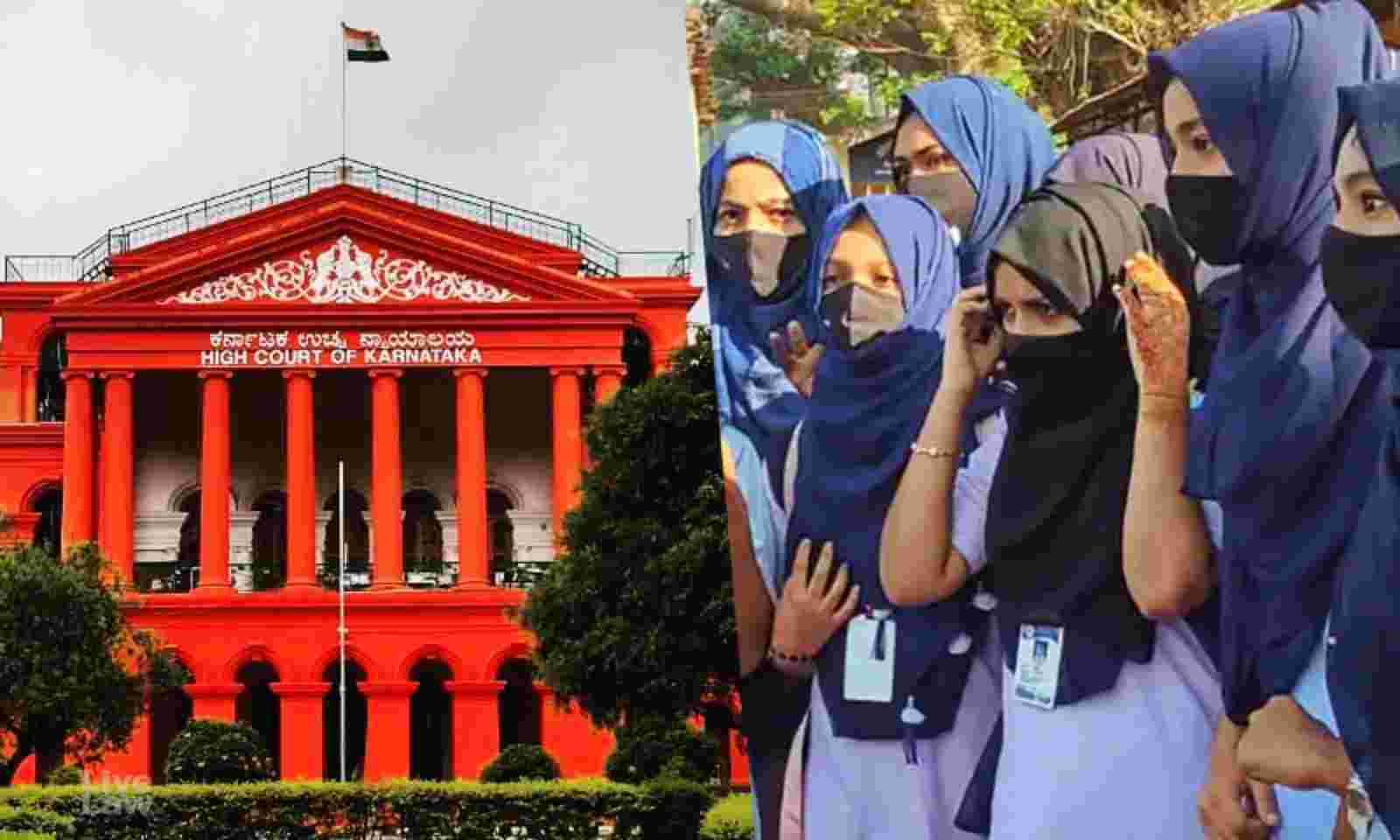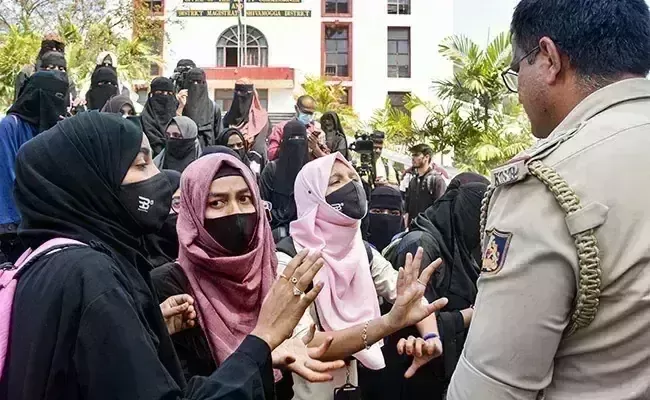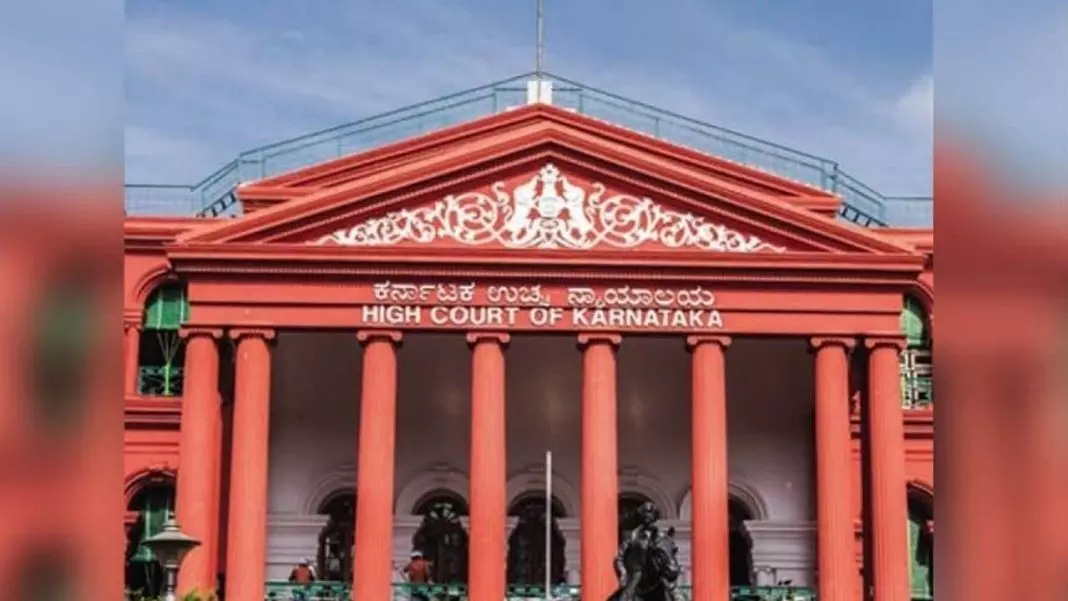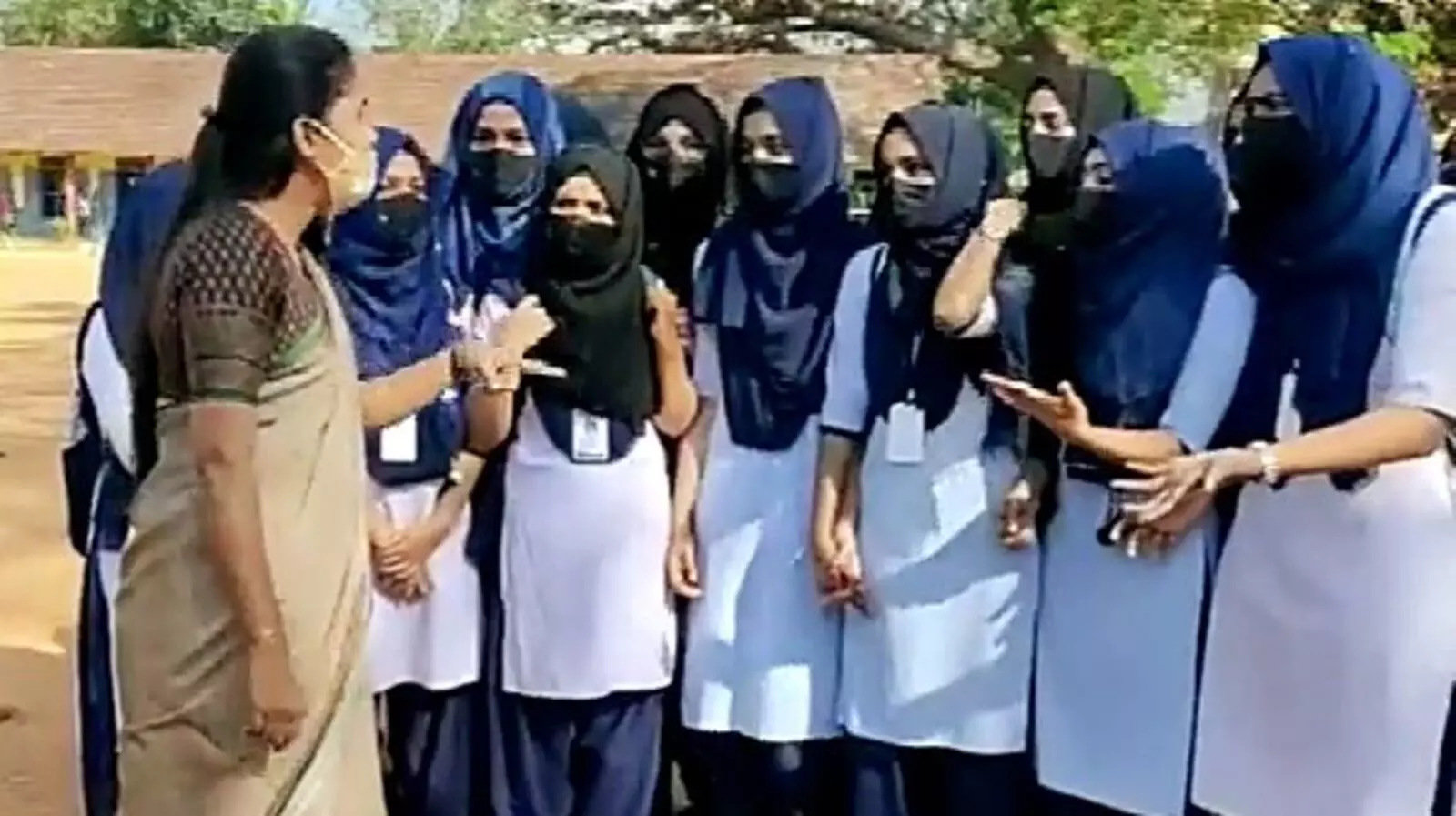
When the court upholds hijab ban
text_fieldsThe Karnataka High Court verdict that dismissed the petitions by Muslim women students against the orders of the BJP government banning the hijab in government colleges, has stirred major controversy, more so for its conclusion that the headscarf is not an essential part of Islamic faith. The opposition to the verdict is quite natural. The order from the full bench led by Chief Justice Ritu Raj Awasthi, has declared wearing of hijab not an essential part of Islam, whereas it is a practice that the Muslim society and scholars leading the community have unanimously followed right from the time of the Prophet until today. The petitioners did raise the argument that the Karnataka government's order of February 5 goes against Article 25 of Indian constitution which guarantees freedom of religion and right to practice religion as one believes, but the court rejected this plea. After arguments by counsels for and against it, the bench reached the judgment that the hijab of a woman is not a religiously essential practice. While that remains the court's legal position, the Hindutva camp had led a virulent campaign and violent agitations against it asserting that practices of a particular religion cannot be allowed inside the classroom, and the government college authorities shut the doors of the college against the hijab-wearing girls on that basis. In other words, if wearing hijab was not an Islamic practice, the protesters would not have any objection. And the position the High Court arrived at is that since it is not an Islamic tradition, banning it for Muslim female students is in order! Not only that, on the other hand the Hindutva student groups who held protests against Muslim girls wearing their religious dress including hijab, were themselves wearing saffron clothes which bear a distinct religious identity.
The crucial point involved in this is who has to sit in judgment on the practices and rites of a particular religion and who is competent to issue edicts on that basis. Based on the constitution, secular democracy and previous court verdicts, the power and right to decide them rests with the religious leaderships of particular communities. The Shariat Act of 1937 is in force even now. As per this law, in matters related to marriage, divorce, inheritance etc, courts are bound to give judgments on the basis authentic books of Sunni and Shia madhabs (schools of thought). In other words, courts cannot decide on them on their own will or issue judgments on that basis. In the case of women's entry into Sabarimala, the Supreme Court which permitted women of all ages to enter the temple precincts, in a subsequent order referred the matter to a larger bench of the apex court for a final decision. It would be an easy conclusion that in secular India with a population of diverse religious communities, the decisions cannot be otherwise. Therefore, the reported move by several Muslim organisations to go in appeal to the Supreme Court against the Karnataka High Court judgment is easily understandable.
Given the background of the planned agenda of the Hindutva bodies to question the very existence and identity of Muslim minority, such challenges are likely to continue. Mostly recently, it was only days ago that the RSS theorised that there are no Muslims or Christians in India, all are Hindus and according to their degree of loyalty they have to be graded into four. The Hindutva organisation is not prepared to tolerate those following a distinct faith and culture. What else should be driving them to trouble and block the education of Muslim women who have for long been studying in schools and colleges wearing the hijab and have been actively engaged in all walks of life? And to what end? In a statement by Kerala governor Arif Mohammad Khan welcoming the verdict that upheld the hijab ban, Khan has raised a queer argument that the judgment has paved the way for Muslim girls to enter the mainstream. As a matter of fact the hijab ban does exactly the opposite, i.e. preventing their attempt to get maximum possible higher education and to enter the mainstream. In other words, by denying the citizen's right to wear the hijab, an attempt has been made to exclude them from the mainstream of education itself. This being the case, Kerala governor's remarks have to be taken as merely a blind repetition of what he was fond of saying earlier.

























